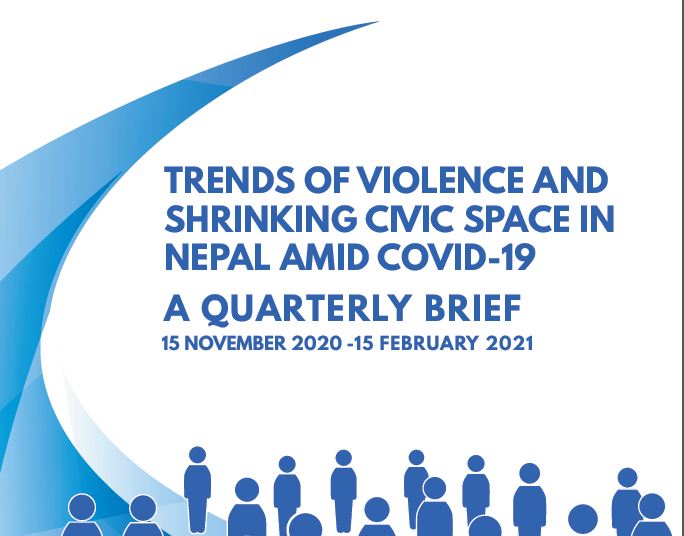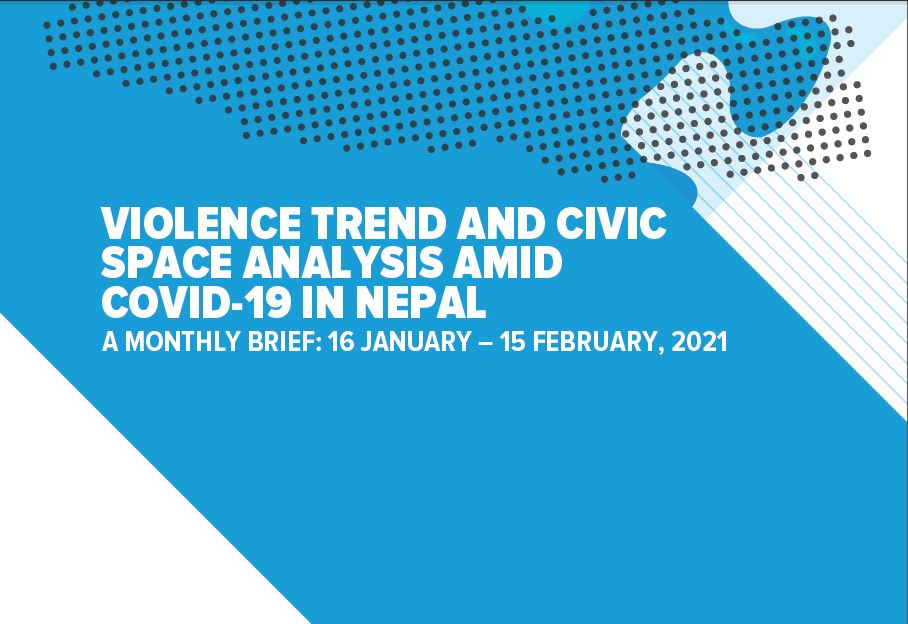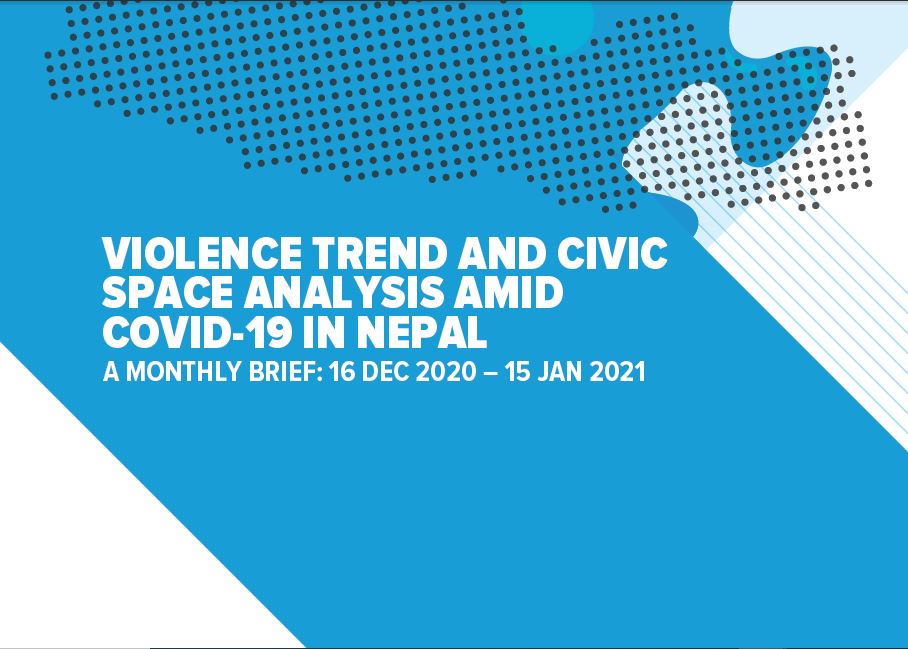Incident Reports
Bill to amend National Human Rights Commission Act alarms experts
2019-04-15
The government has drafted a bill to amend the National Human Rights Commission Act-2012, which experts say would curtail the rights of the constitutional watchdog.
The bill, drafted by the Prime Minister’s Office, is set to be registered at the federal parliament’s secretariat.
The “Bill to Amend the National Human Rights Commission Act-2012” has made it mandatory for the commission to recommend cases against human rights violators--individuals or institutions--to the attorney general.
Experts say such a move could defeat the whole purpose of holding human rights violators to account, especially when government authorities themselves are involved in the offences.
“Since the government authorities also violate human rights, the attorney general, who is the government’s legal counsel, may not prosecute the case,” said Advocate Om Prakash Aryal, who had filed a public interest litigation on March 6, 2013 in relation to the recommendations made by the rights commission and the government’s inaction.
“The apex court had said it is mandatory for the government to implement the national rights body’s recommendations,” Aryal told the Post.
There has been a dismal record when it comes to implementation of the rights watchdog’s recommendations by the government.
“If we see the status of implementation of the recommendations made by the commission between 2001 and 2017, only 12.5 percent of the total 810 recommendations were fully implemented, 48.3 percent were implemented partially and 39.2 percent recommendations are under consideration,” states the rights body’s annual report for 2017-18.
The report suggests that most of the recommendations that were implemented were related to compensation. “Recommendations made for taking action against those involved in human rights violations remain largely not implemented,” the report says.
At least three members of the commission, including Mohna Ansari, and experts on human rights claimed that the new provision of authorising the attorney general to decide whether a case should be filed or not would surely undermine the constitutional body.
As per the existing Act, the human rights council can directly write to the Cabinet for action against human rights violators.
Three years ago, at the government’s request, the human rights council had drafted a new bill to make the Act compatible with the new constitution and endorsed it after phase-wise discussions before sending it to the Prime Minister’s Office. However, it has been gathering dust, as the government ignored it.
“By ignoring the bill for three years, the government gave an indirect and moral pressure to the commission. But now it has come up with an amendment bill that is unacceptable,” said Sudip Pathak, a member of the commission.
The bill prepared three years ago had proposed that the council recommends to the Cabinet action against human rights violators, which would then be implemented by the attorney general.
If the new bill is endorsed, the commission should recommend to the attorney general action against rights violators. Since the attorney general would hold the discretionary power to decide whether to move the case forward, the recommendations may not get implemented, say experts.
Clause 17 (3) of the new bill proposes that the attorney general can request the commission for further investigation or collection of more evidence, if necessary, before deciding to register the case.
Clause 17 (1) of the law says the commission will have to write to the concerned official, individual or agency for implementation of the recommendations, decision or order issued by the commission pursuant to the constitution or the Act.
“In case of receiving in writing from the commission to implement the recommendation, decision or order as referred to in Sub-section (1), the concerned official, individual or agency shall have to inform the commission generally upon implementing such recommendation, decision or orders,” reades Clause 17 (2).
“Basically the responsibility of the commission is to recommend to the government action against human rights violators after determining the perpetrators and the attorney general must move the case forward,” said Aryal.
“It’s up to the police administration then to investigate the matter further,” Aryal added. “The role of the rights watchdog was complementary as it does not have a mechanism for criminal investigation like the Commission for Investigation of Abuse of Authority.”
Council members claimed that at a time when the recommendations of the rights watchdog are rarely implemented, the new bill curtailing its rights could promote impunity in the country.
The bill also proposes removing Sub-clause 2 of Clause 27 of the Act, which would bar the commission from opening regional, sub-regional and contact offices in different parts of the country.
“The attorney general has been ignoring the recommendations of the Supreme Court even when mandatory laws are in place. What will be the situation like if the government’s legal counsel gets discretionary power to decide whether or not to move the cases forward,” said Dinesh Tripathi, a human rights lawyer.
“This will defeat the whole purpose of the having an all-powerful constitutional commission. If the government continues to ignore its recommendations to take action against those violating human rights despite the Supreme Court’s verdict, the human rights commission would become toothless and its job will be limited to organising seminars.”
However, Koshal Chandra Subedi, joint-secretary at the Prime Minister’s Office that drafted the bill, claimed that the provision allowing the attorney general to decide on the cases recommended by the commission was included just to ensure that government cases won’t get defeated in court.
“The commission’s recommendations, nonetheless, are mandatory for the government,” said Subedi, who heads the Human Rights and International Treaty and Agreement division of the PM’s Office.
Related Reports
Human Rights / Mahottari
Woman subjected to assault and inhumane treatment on witchcraft allegation in Mahottari
Human Rights / Sankhuwasabha
Two killed in prison in Sankhuwasabha: Seven inmates taken into custody for investigation
Interpersonal Violence / Kanchanpur
Inmate being subjected to physical assault and threat in prison accuses family members
Human Rights / Bara
Woman subjected to assault and inhumane treatment on witch craft allegation in Bara
Related Trend Analysis
Analysis

THE NEPAL PEACE MONITOR ANNUAL REVIEW: 2020
October 25, 2021
Human Trafficking / LGBT+ Rights / GBV / Political / Children’s Rights / Senior Citizens’ Rights / HRD Issues / Human Rights / Interpersonal Violence / Governance / Covid-19 / Civic-Space / PwD
Analysis

COCAP BIWEEKLY: INCIDENTS SURROUNDING COVID-19 January 16 - 31, 2021
February 04, 2021
GBV / Human Rights / Governance / Covid-19
Analysis

COCAP BIWEEKLY: INCIDENTS SURROUNDING COVID-19 January 1 - 15, 2021
January 21, 2021
GBV / Human Rights / Governance / Covid-19




